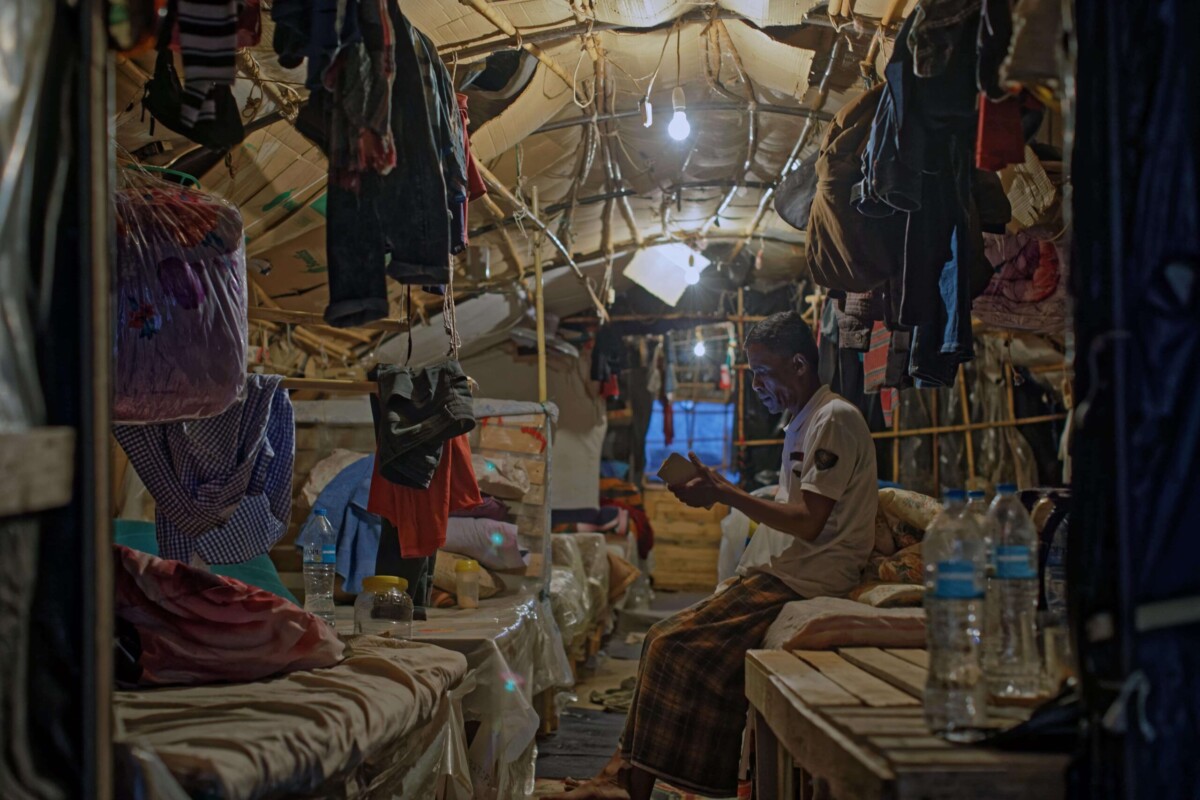COVID-19 impacts on poverty
The COVID-19 pandemic is making an already highly unequal world even more so.

The COVID-19 pandemic is making an already highly unequal world even more so.
In 2019, according to the latest available data by Eurostat, for national citizens in EU-countries, the highest risk of poverty or social exclusion was observed in Greece (31%), followed by Romania (28%), Bulgaria (27%) and Italy (26%). But the rates for non-EU citizens were extraordinarily high too. Greece appeared second in the rank with 56.8% (over one out of two!) after Sweden (57.3%), with the highest risk of poverty or social exclusion for non-EU citizens living in the country.
In a recent interview which my colleague Stavros Malichudis and I conducted with Apostolis Kapsalis, researcher on industrial relations at the Labour Institute (INE) of the General Confederation of Greek Workers (GSEE), he talked about how the pandemic has driven the labor market and labor relations into an unprecedented, critical situation compared to previous years, for migrants as well as national citizens.
“The harsh financial restrictions that we experienced in 2012-2013, will seem like child’s play, like a sweet memory,” Kapsalis told us, comparing an extremely unstable political, economic and social period for Greece to the lasting effects that COVID-19 has created today and for the future.
Indeed, the COVID-19 pandemic is making an already highly unequal world even more so.
“The most vulnerable will be irreparably affected. If we have workers who, since last spring, are already sending less money back to Bangladesh, and this continues and you add the difficulties of moving around the country, I think these poorest groups will be hit even harder. We will go into situations of extreme impoverishment and misery,” Kapsalis adds, explaining the harsh consequences of the pandemic for the thousands of migrant land workers living in makeshift settlements in Manolada, Greece.
Solomon has reported extensively on Manolada, a small village in the Peloponnese that you may not have heard of, but regardless of where you live in the world, you will most probably have tasted the strawberries Manolada produces.

Up to 8,000 Bangladeshis live there during peak season, employed as workers in the fields.
“Housing is the major problem in Manolada,” Kapsalis states, and this year was made even worse by COVID-19 restrictions.
The housing issue for workers resurfaced in March after the government’s announcement of stay-at-home restrictions, as part of its efforts to curb the spread of COVID-19 in Greece.
One of the most interesting issues that arose in the interview with Kapsalis, is the paradox of Amendment 13A, embedded in Greek legislation, which creates the following reality: in order for a migrant with no legal documents to work, he must first be legally declared as “deportable”.
A new report by Terra Association on agro-food supply chains and exploitation of labour, (E(u)xploitation – Gangmastering: The southern question Italy, Spain & Greece), provides a good explanation of this contradiction.
Below is an excerpt authored by Apostolis Fotiadis, who worked on the Greek end of this report, which provides an understanding on how the system works:
“13A is a legal amendment introduced with Law 4384/2016. It allows employers, if no other workers are available, to request an exemption to employ workers that do not legally reside in the country and do not have work permits. The permit predicts the suspension of deportation of irregular migrants employed in the agricultural sector and is updated every six months. It can also be obtained multiple times. Amendment 13A is considered problematic in various ways, mostly for providing permission to work without resolving the issue of residence permits. As a result, it accentuates worker dependency on employers for maintaining their lawful presence in the country as well as access to the labour market.”
In our interview, Kapsalis is straightforward about it: “This is a kind of crude blackmail. [..] Instead of the state legalizing these people who are actually employed and working, and organizing the agricultural economy in a different way, the state is in fact, punishing the victim of the crime twice.”
I asked Apostolos Fotiadis to share a few lines about the report he has contributed to:
“The report examines how unfair trading practises and absence of a strong regulatory framework perpetuates patterns of exploitation through the agro-food supply chain. It proves there is a lot of space for regulators who would have the political will to improve checks and balances and tackle problems.”
In another report by NGO Faros, published in collaboration with MIT D-Lab last December, we read about the barriers in the labor integration of youth refugees in the Greek labor market. The report concludes that even though young asylum seekers or recognized refugees theoretically enjoy full access to the labor market, they are usually drawn to the informal labor market and remain excluded from their labor rights and their full integration into society.
The pandemic has worsened their possibilities, with professions where they could usually be employed with better terms (e.g. tourism) frozen for most of the past year. Once again, COVID-19 is proving to be the “disease of inequality” when it comes to refugee and migrant labor.
We spoke with Paul Ferdinand Schlag, lead researcher and author of the study, and you can read about what he told us here.
Thanks, as always, for your support.
I’d love to hear from you. Please don’t hesitate to contact me and share your thoughts, questions, and ideas.
‘Till next time,
Iliana
Before you go, can you chip in?

Quality journalism is not of no cost. If you think what we do is important, please consider donating and becoming a reader who makes our work possible.